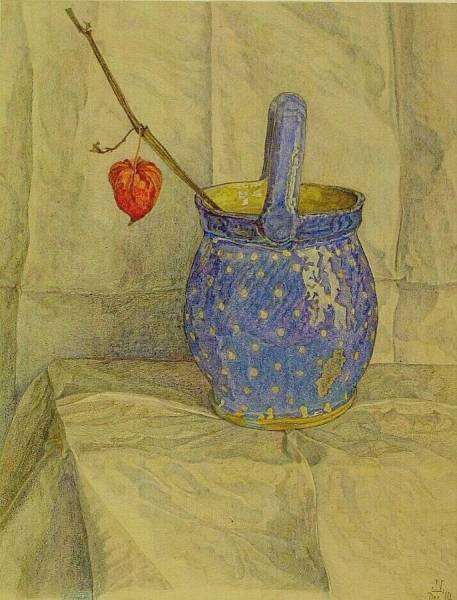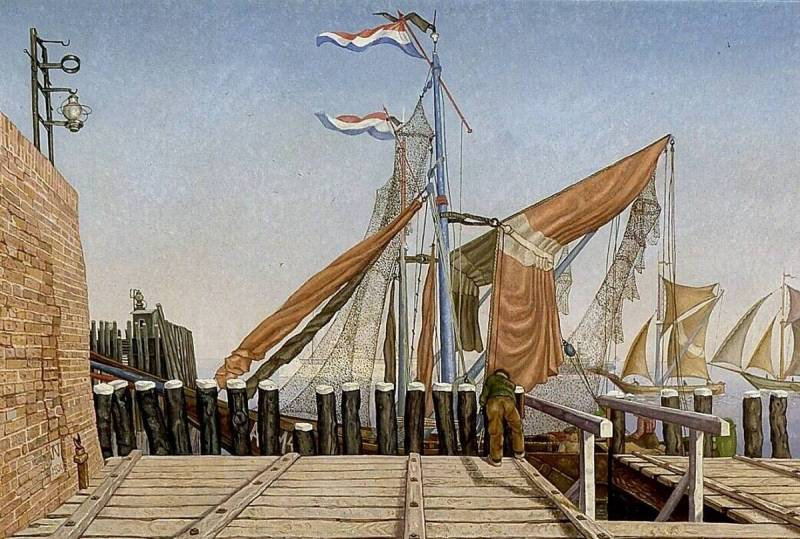Jakob Nieweg (Hogebeintum, 1877 – Amersfoort, 1955) was, following in the footsteps of his (grand)father, a Dutch preacher who became mainly known as a painter. He studied theology in Groningen. In the evenings he took drawing lessons with Anna van Prooijen and H.P. Bbraker. Bbraker is an avid supporter of innovative Dutch artists such as Vincent van Gogh, Jan Toorop, Johan Thorn Prikker, Piet Mondriaan, Floris Verster, Bart van der Leck and painters of the Bergen School. His lessons are a revelation for the young Nieweg. He also applied detailed pointillism in his work, which produced tranquil, timeless images.
Nieweg was successively a preacher in Ter Apel, Winsum and Spankeren. Here he became friends with the painter and critic Just Havelaar, with whom he often painted outdoors. In 1914 Nieweg resigned his position as a preacher to devote himself entirely to art in Bloemendaal with the financial support of his father-in-law. He himself thought that was a logical step; both behind the pulpit and the easel it was the intense religious feeling that drove him. “How you look at things determines their beauty,” he said after Beerder.

In 1917 he became a member of the Haarlem artists' association 'Kunst Zij Ons Doel' and the following year he had his first solo exhibition in Rotterdam. He now also became friends with other artists from the circle around Beerder, including Dirk Nijland, J.A. Zandleven and Charley Toorop.

From 1919 he lived in Amersfoort until his death in 1955. Nieweg painted (and made watercolours) mainly landscapes, (flower) still lifes and portraits that are striking because of their great originality and are an ode to nature. Van Gogh was undeniably a source of inspiration, but Nieweg developed his own unique style. In his best works he achieves a dreamy, sometimes slightly surreal effect that invites you to look attentively. Examples are pointillist snow scenes, set up in subtle purple and gray tones as tranquil representations of a group of houses.

He refused to become a member of the Kultuurkamer in 1941 and was no longer able to exhibit and became active again as a pastor and involved in the resistance. After the liberation, the artistic climate in the Netherlands changed. Interest in his work also declined.
Nieweg was a member and founder, together with Toorop and Nijland, of De Brug, a board member of the Amersfoorts Kunstenaars Genootschap AKG and a board member of the Free Artists Association. 'De Brug' was an artists' association that advocated realism accessible to a wide audience and also published lithographs, for example. He was teacher of Elisabeth Catharina Bergsma (1902-1975). Nieweg married Neine Geertruida in 1904; Charley Toorop painted their portrait in 1927. Nieweg is best known as an advisor to the Kröller-Müller couple.

Do you want to sell or buy a Nieweg yourself? We are interested!
